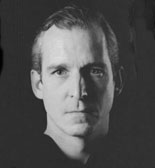
After working in Paris during the 1970’s Brown became associated with a group of artists in New York who collectively formed an radical group know as Frontier Art at the beginning of the eighties, and included Jean-Michel Basquiat and Keith Haring. The group reflected the need for a new aesthetic dimension that would be more metropolitan, that would not so much renew the traditional language of painting as define a new expressive reality. They had originally rejected any link, even one of conflict, with any conventional form of artistic expression, in an attempt to define what was real by rejecting the filter of art. Brown was a leading member of this group who received enormous critical acclaim and became highly influential during this period. Together they sought to accomplish the renewal of the language of abstraction, and thus to recover the feeling of transcendence - to reconsecrate abstraction.
Brown was fascinated by ethnography and the use of signs and symbols in primitive cultures, and through his work developed a powerful and mysterious language of iconography, using symbols alluding to the ascetic ideas of solitude and mediation. In creating his work he rejected the conventional limits of art materials, and introduced raw materials and objets trouves in a fresh challenging aesthetic. These he presented in a Baroque context, using flamboyant antique frames, again refusing to conform to accepted pictorial expectations.
Having studied art in California, and the Michelangelo Institute in Florence, Brown settled in Paris in 1972 and attended the École Nationale des Beaux Arts. He first exhibited his work in Paris at Galerie Bettencourt in 1975, and participated in several shows over the next few years including, the Cité Internationale des Arts, 1976; Galerie Axis, 1977; Galerie Germain, 1978. In 1980 he was invited by Keith Haring to exhibit in Club 57 New York, where he attracted the attention of the influential gallery owner, Shafrazi, who would prove highly important in championing Brown as a leading member of Frontier Art, giving him a one-man show in 1983. Brown received enormous critical acclaim in New York, and subsequent one-man shows followed at Larry Gagosian Gallery in 1985, and Leo Castelli Gallery in 1986, 1989, 1991, 1992, 1995. Brown also continued to exhibit extensively throughout the world, and held major one-man shows in Paris at Galerie Johanna Vermeer, 1990; Galerie Enrico Navarra, 1990; Galerie Lelong, 1990, 1993, 1995; Galerie de Poche, 1991; Galerie JGM, 1992; Galerie Frank Bordas, 1993. And participated in major group shows most notably, The Human Condition, San Francisco Museum of Modern Art, 1984; New Narrative Painting, Metropolitan Museum, NY, 1984; New York, 85, Centre Art Contemporain, NY,1985; Art Kites, National Gallery, Berlin, 1991; Objets d’Artistes, Centre Georges Pompidou, Paris, 1994; Fisher Landau Center, New York, 2006, Galleria Arte Moderna, Turin, 2012; USC Fisher Museum of Art, Los Angeles, 2017.
In later years Brown lived in Mexico where he continued to paint, as well as setting up the poignantly named creative publishing house Carpe Diem Press in Oaxaca. He died tragically with his wife in a car accident in February, 2020, in Mexico.
The artist is now represented in many major museum collections of modern art including the Museum of Modern Art, New York; Metropolitan Museum of Art, New York; Whitney Museum, New York; Musée Pompidou, Paris; Tamayo Museum, Mexico City.